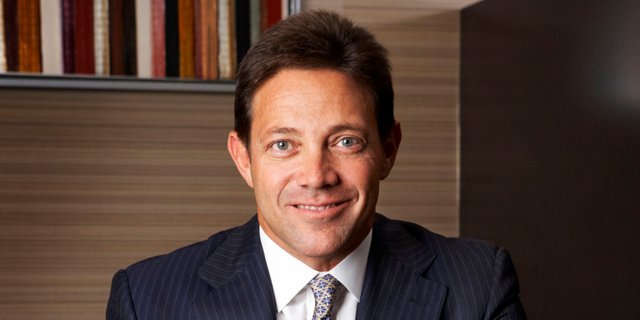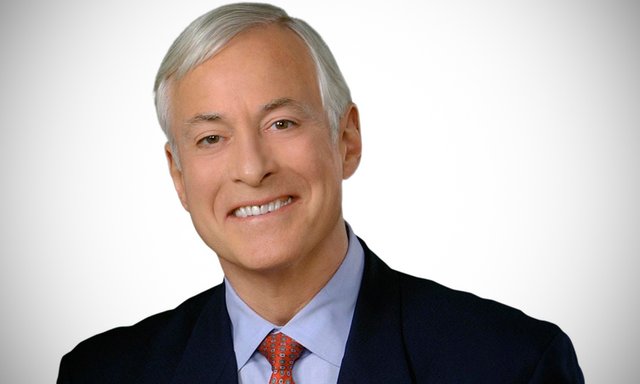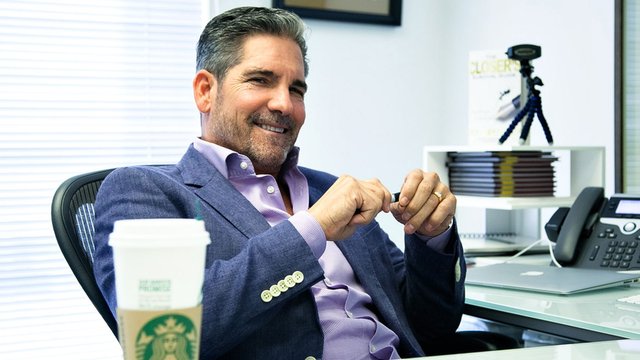Want to be a multibillionaire? There's only one skill you need to know well.
What does Steve Jobs, Bill Gates, and Mark Zuckerberg have in common? They all are fantastic at this one thing:
Sales.
The ability to effectively communicate and make someone take action. Below is a video from Evan Carmichael of interviews of some of our era's greatest minds and my notes of the video with my commentary interjected to add value. Enjoy!
Take aways:
Jorden Belfort:
- In sales and entrepreneurship, you’re not only selling to your customers, but you’re selling your vision for the future to your stakeholders which include the bankers and investors backing you, the company you work for, Your employees, your vendors and suppliers.
- Sales is the transference of emotion and that emotion is certainty. If you can’t instill certainty into whoever you’re trying to influence, you leave too many circumstances to luck and money on the table.
- An environment of uncertainty is destructive. Not only for your customers you’re selling to but the entire company and everyone associated.
- Leadership book advocate the virtue of saying “I don’t know” as something positive. It isn’t. Rediscover your vision, adjust if you need to and go at it boldly. No wishy washy attitudes. You have to be all in or nothing because one foot in the door isn’t good enough to pass through it.
- Successful visionaries have the ability to sell well. Look at Steve Jobs, Bill Gates, and Larry Ellison and you’ll see that all of these great people have successfully sold their visions to the world and have built multibillion dollar industries because they knew how to sell the emotion of certainty in an uncertain environment.
- Everyone is a sales person. If you ever needed to ask someone for something or influence anyone to get what you want, then you’re in sales. There’s always a closed deal at the end of every interaction and the worst action that can happen is inaction.
Tim Ferris:
- You need to be able to communicate effectively
- Books that Tim recommends outside of business books are all about writing. Why is that? The spoken word cannot be later analyzed without recording yourself talking with another person. Writing crystalizes communication for analysis.
- Study print ads that have limited space
- The common denominator across all successful entrepreneurs is that they are fantastic communicators. Coming back to Jorden’s point, they can convey the emotion of certainty very well.
- Practice is the only way to get better
- Take time to study good advertisements and ask yourself why it caught your attention
- Anytime you buy something, think of why you bought it and when that record gets big enough, you can start noticing patterns and sell to your demographic that’s like you. It’s a great way to find your idea for a business or communicate better with your potential clients.
- Everything that has worked in sales has been done before. Don’t reinvent the wheel. Again use what works on you and find a group that is similar to you and sell to them.
Gary Vaynerchuk:
- Spend some time not focused on selling your product but listening and soliciting problems. It might sound counterintuitive to bring up problems, but problems like these are opportunities in disguise.
- Have relationships that are not purely transactional, be human! It’s like a relationship with a partner. If all you want is to hook up, you don’t have a relationship, just a sexual agreement and nothing beyond that. Be with the person for the sake of being with them.
- Lay a foundation for the relationship that isn’t transactional. This can be done through rapport building and being human (there it is again)!
- Sell with your ears, not with your mouth. What does that mean? Listen more than you talk and when you need to talk, do so in a way that conductively guides the conversation in a good direction.
- Thoughts are more valuable than money and often leads to more money in the end (read Think And Grow Rich by Napoleon Hill for more on this)
Brian Tracy:
- Top salespeople and successful entrepreneurs are committed to lifelong learning. They’re always in the position of the student and always wish to learn more.
- Your mind is your most valuable asset (again read Think And Grow Rich) and the high the quality of thought, the higher your success will be in business. Looking for creative ways to improve and asking how you can reach new levels will put you into this valuable state of mind.
- It will get to a point where you’ll know so much that you’ll become the most valuable person in your industry.
- The more practical knowledge you learn and apply, the more you’ll get paid.
Guy Kawasaki:
- “Let a hundred flowers blossom” There will be times where your customer isn’t who you think they are and will use your product in way you didn’t intend it to be used. Most people only ever use or care about the 20% of product/service features that will bring them 80% of the results they want.
- It’s stupid to force a flow a different direction. It’s almost like trying to control the ocean.
- Fix for who’s buying. You can go to companies and ask why they’re not buying your product and you can add what they want, but you still run the high risk that they still won’t buy. As opposed to ask your current customers why they bought with you and they’ll tell you the features that are most important to them and you can build those up. Again fix for who’s buying.
- Build certainty by providing a demo to the customer. Be there every step of the way and collect data to tailor it to other customers like them.
- Don’t always go for the top cheese. Address the end users who will be using the product. It could be the IT people or the admin staff. The more influencers you have in your corner when you go to the decision makers, the better your chances at closing a deal.
Eben Pagan:
- There’s a stigma for marketing and sales, but as the previous speakers said (particularly Jorden) good luck trying to start a business without knowing any sales.
- The best selling
- Learning to sell in a consultative style rather than pushing your products is more successful in the long run. What’s the difference? The amount of questions. The more questions you ask and the more you listen to a person’s problem (See Gary’s points about laying a foundation of trust that’s outside of a transactional basis) the more you can tailor a solution that works the best for them and can build some serious loyalty and trust between the two parties.
Mohnish Pabrai:
- Don’t try to sell something you wouldn’t buy yourself (See Jorden’s point on certainty. It’s hard to transfer the emotion of certainty when there is none and customers can usually pick up on that lack of certainty)
Grant Cardone:
- Own the space you’re in. Competition is not good for you or your company, and you should do and spend what it takes to put yourself above the rest.
- Those who are using social media have a huge edge in the game. Not only are you able to keep in touch with your customers, but you can do some fact finding on them before you reach out to sell a solution (Gary is a huge fan of this and he’s grilled Cardone on this in the past)
- People not knowing about you is the biggest problem in sales. If your customer is facing a challenge you know you can solve for them using your products or services, are they thinking of you? Why or why not? What can you do to change this for the better? Make yourself known and take advantage of all avenues of marketing.
Peter Sage:
- The top performers in business ask not, how I can sell to you, but I how can I understand you and serve you (See Gary’s point of laying a foundation this way).
- Those who focus on the first steps of fact finding and rapport building will have a smoother time with the later steps of objection handling and closing the deal.
- A lack of authentic connections with the client will require a harder fight to save the deal and might leave both parties unhappy in the end
- Having a fiduciary duty to the client and knowing when to walk away from a client when you know your product or service won’t work for them will build trust and they can open doors for more business from that trust
- Make people want to do business with you rather than being convinced to do business with you
Zig Ziglar:
- Everyone is a sales person and everything is selling (See Jorden’s points)
- Personal stories are a fantastic way to build rapport! Adding humor is also an awesome way to make that even greater. Humor in stories can come from the unexpected and understanding can come from relatable aspects
I hope you guys enjoyed the video and If you liked it please suscribe to his channel. He's a real great guy and he's been around since youtube started and still going strong. If you have something to add to my notes or thought they were helpful, let me know. I always love to hear from the Steemit community.
Please upvote and resteem if you liked it and follow me for more content (I will follow you back). Thanks for reading/watching!











Great Share.
Love All these Guys.
Tom Hopkins is a Beauty that could be added to your list. If you're not familiar with Tom, Merry XMAS!
Steem On,
The Dream is Indeed Live,
You Got a Golden Ticket!
Thx my dood :)
pleasure :)
Weed and LSD made Steve Jobs a billionaire.
That helped I suppose XD